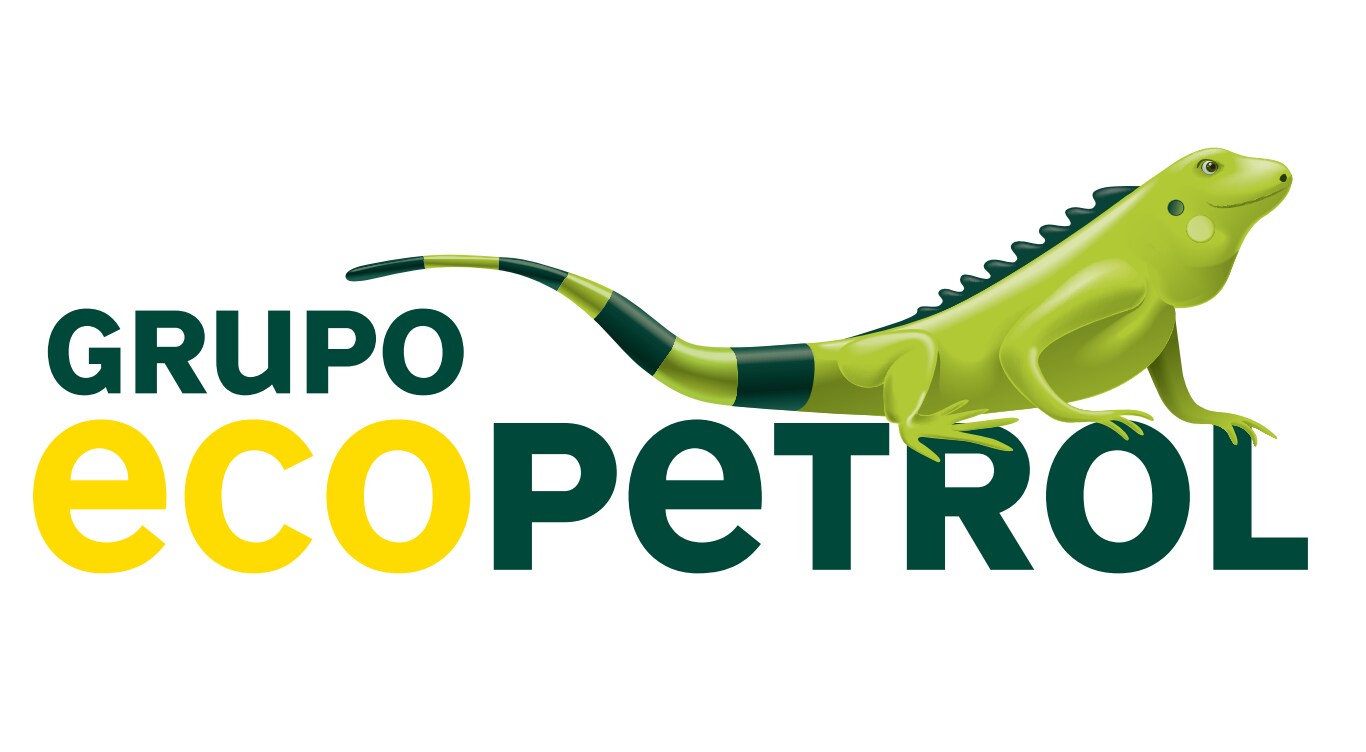Meeting climate and biodiversity targets through nature-based solutions
Pledge by
Grupo Ecopetrol
Protecting 30'000 hectares, planting 12 million trees and offsetting 2 million tons of carbon through Nature-Based Solutions by 2030

- Type
- Conserving, Restoring & Growing, Enabling
- This pledge will take place from
- 2020 to 2030
- Location
- Colombia
Pledge overview
Ecopetrol has established four fundamental pillars as its roadmap in the energy transition: (i) Increasing competitiveness and resilience in the traditional business, (ii) Diversification, (iii) Accelerating decarbonization, and (iv) TESG (achieving sustainability by incorporating Technology as an enabler, innovator and accelerator of Environmental, Social and Governance (ESG) issues). Based on these new definitions, Ecopetrol is carrying out a new strategic update in 2021.
The company´s pledge relies on its Biodiversity Strategy, which contains four elements: i) prevention and mitigation of impacts and compensation of residual impacts applying the mitigation hierarchy, ii) implementation of nature-based solutions (NBS) to address challenges associated with climate change, biodiversity management and water resources, iii) knowledge generation on biodiversity and ecosystem services, and iv) Consolidation of the company's culture on biodiversity. Ecopetrol has set three specific targets that are aligned with the collective goal to conserve, restore and grow 1 trillion trees by 2030.
1. Implement, support, fund or develop NBS schemes to restore and avoid deforestation-degradation and deliver 30.000 hectares by 2030.
Multiple projects at different progress stages are being implemented to address this pledge. A specific example is the creation of a network of ecological reserves in lands where the Ecopetrol Group holds legal tenure, called Ecoreserves and dedicated partially or totally to biodiversity conservation and to maintain ecosystem services, in parallel with productive and exploratory uses. The Company’s goals is to designate 15 ecological reserves in 2021, 20 by 2023 and 50 by 2030, which would amount to 15.000 hectares.
2. Donate, grow and plant 6 million trees by 2023 and 12 million trees by 2030.
To reach our goal, mandatory and voluntary commitments are being developed in partnerships with governments and regulators, to keep a transparent record of the Company’s progress towards its commitments. As part of the process, Ecopetrol keeps a register of its contributions and it provides quarterly progress updates to the Ministry of Environment and Sustainable Development.
3. Carbon offset through Natural Climate Solutions (NCS) with the goal of offsetting 2 million tCO2e by 2030.
With the support of The Nature Conservancy (TNC), Ecopetrol advanced during 2020 in identifying potential NCS opportunities at the national level to contribute to the company´s emissions reduction goals and during 2021 it will start implementing some of these opportunities through different partnerships. In line with the mitigation hierarchy, the company is focusing its decarbonization efforts in reducing operational emissions, but is contemplating the use of NCS to compensate residual emissions. We estimate that around 30% of the company´s climate reduction goals will be met through NCS. Currently the company is prioritizing the following projects:
• Avoided deforestation forest degradation (REDD+)
• Restoration of natural forest, and
• Planting trees together with sustainable silvopastoral and agroforestry activities.
The following evaluation criteria has been established to select future projects:
• Carbon storage or capture potential,
• Government priorities and data availability,
• Social and environmental co-benefits,
• Use of recognized carbon standards,
• Cost-effectiveness, and
• Experience and capabilities of developers.
These activities delivered under our NBS portfolio could also deliver co-benefits that include:
• Diversification of local economies, poverty reduction and local employment
• Climate Change cooperation
• Generation of scientific knowledge on biodiversity and carbon capture potentials
• Water and food security
Actions in this pledge
-
Conserving trees and forest landscapes
Supporting actions
- Permanent conservation
- Secure a forest through acquisition or legal agreement to avoid planned or unplanned deforestation or degradation, and/or ensure permanent conservation of land
- Conservation support activities
- Support the operating costs and activities of existing conservation areas, including advocacy for conservation policy
- Other conservation activities
- Ecoreserves and regulatory compliance activities
Additional details
• Designate 20 ecological reserves by 2023 and 30 by 2050.
• Comply with mandatory biodiversity offsets according with implementation plans authorized by national and regional environmental authorities.
• The two aforementioned activities in addition to our portfolio of NCS projects, will contribute to restore and/or conserve 15.000 hectares by 2023 and 30.000 hectares by 2030.Conserving
- Land area
- 30'000 hectares
-
Restoring and growing trees and forest landscapes
Supporting actions
- Assisted natural regeneration
- Actions that support natural regeneration without tree planting, such as Farmer Managed Natural Regeneration, forest soil remediation, exotic species control, disease prevention, and wildfire protection
- Reforestation
- Re-establishment of forest through planting and/or deliberate seeding on land classified as forest, that has been degraded or where trees are unlikely to regenerate naturally
- Agroforestry
- Activities that establish and manage the integration of trees into agricultural landscapes, silvopastoral systems, farming in forests and along forest margins and tree-crop production
- Mangrove restoration
- Establishment or enhancement of mangroves along coastal areas and in estuaries
Additional details
By 2022 the goal is to report four million trees, by 2023 six million trees and by 2030 twelve million trees. Efforts of supporting, growing or planting trees to deliver the goals will come from mandatory biodiversity offsets and voluntary investments.
Restoring & Growing
- Trees
- 12 million
-
Enabling activities for trees and forest landscapes
Supporting actions
- Nursery and seedling development
- Establish tree nurseries, including actions such as identification and collection of seeds and/or growing seedlings
- Education and capacity building
- Forest / tree species conservation and restoration education programmes, targeted educational and behaviour change campaigns, training and capacity building, including promotion of local and traditional knowledge and practices
- Community mobilisation
- Community mobilisation and engagement activities for conservation, restoration and reforestation, including enabling systems of community governance, etc.
- Youth engagement
- Engagement of young people and/or youth networks to catalyse a restoration generation
- Data collection, management and technological tools
- Activities that provide data and/or technological tools to support conservation and restoration (e.g. monitoring etc.)
- Financial innovation
- Activities that create additional financial opportunities and incentives for conservation, restoration and reforestation (e.g. blended financing vehicles, etc.)
Additional details
•Hectares Protected: 2023 - 15.000h and 2030 - 30.000h.
Monitoring Activities: Geographic Information System record of projects development.•Trees delivered: 2023 - 6 million and 2030 - 12 million.
Monitoring Activities: Ministry of Environment and Sustainable Development quarterly report and internal record keeping.•Carbon offset: 2023 - 0.3 tCO2e and 2030 - 2 tCO2e.
Monitoring Activities: Certified, verified or estimated carbon credits with high standard review and assurance.Enabling
Carbon benefits
2 million tons CO2e by 2030
Our ecologically and socially responsible approach
Grupo Ecopetrol´s Social Environment Management strategy establishes four strategic lines: Environmental Management, Physical Security, Engagement, and Social Investment. These lines are aligned with the Sustainable Development Goals (SDGs) and Colombia’s National Development Plan. Ecological and Social Responsibility throughout our actions is paramount and prioritizes three main objectives:
1. Socioeconomic and poverty gap reduction
2. Address social conflict factors
3. Strengthen trust levels
- The Dow Jones Sustainability Index
- The IUCN – Global Standard for nature-based solutions to global challenges
- GRI
- TCFD
- SASB
- CDP Climate and Water.
Our results tracking
Key social indicators are currently being measured in Grupo Ecopetrol but are not yet differentiated specifically for direct actions related to NBS projects. Compulsory and social investment data, social return on investment, Human Rights risk management, and trust level surveys with stakeholders are the main components of social indicators to measure in the areas where Grupo Ecopetrol is present.
Ecological metrics
Current benefits of NBS in addition to climate change mitigation, are widely known. Adaptation, Biodiversity protection, aligning with the Sustainable Development Goals, water security, ecosystem services, job creation, economic opportunities, improved wellbeing and many other factors are positively impacted by NBS projects and offer co-benefits. However, specific metrics to measure these benefits need more accurate definition and direct association to investment and execution of NBS projects.
Social metrics
It is important to note that, for now, no specific indicators or metrics for social impacts related to NBS are being implemented, and further studies may be required to measure accurately the specific social and ecological impacts of these types of projects. Indicators to be implemented in the near future by Ecopetrol related to NBS are focused on these specific areas: Trust/confidence level: survey of communities’ perception of Grupo Ecopetrol’s presence and actions. Social Return on Investment: measures the impact of past and ongoing investments. Alternative employment opportunities created in other sectors. Population with better access conditions to fresh water. Contribution to prioritized Sustainable Development Goals (SDG) to be defined. Biodiversity and connectivity metrics to be defined. Sustainable business opportunities metrics to be defined.
Our system of accreditation
SouthPole will support the process of structuring and developing the Natural Climate Solutions portfolio of the Ecopetrol Group. Their support includes validation and constant monitoring of selected projects. In addition we plan to verify or certify carbon offset opportunities under the highest standards, such as Gold Standard and Verra.
Our efforts around trees, are being reported to the Ministry of the Environment and Sustainable Development of Colombia through a public accounting platform that helps prevent double counting.
Our partners
- Ministry of the Environment and Sustainable Development of Colombia.
- Alexander von Humboldt Biological Resources Research Institute.
- The Nature Conservancy - TNC
- Wildlife Conservancy – WCS
- Natura Foundation
- ISA Group
- SouthPole
- Fondo Acción
Our locations
We are working at locations across Colombia.
Andean region: Magdalena Valley River.
Orinoco region: activities focused in the states (departments) of Meta and Casanare.
Amazon region: focus on avoided deforestation of existing tropical rainforest and, in some cases, with the participation of indigenous communities.
Pacific and Caribbean regions with additional opportunities in development.

Our implementation progress
Pledge implementation progress reporting is managed in collaboration with IUCN’s Restoration Barometer, and is required annually from the year following pledge publication.
-
Grupo Ecopetrol pledge implementation progress report 2022
with supporting documentation
-
Grupo Ecopetrol pledge implementation progress dashboard 2023
with supporting documentation
